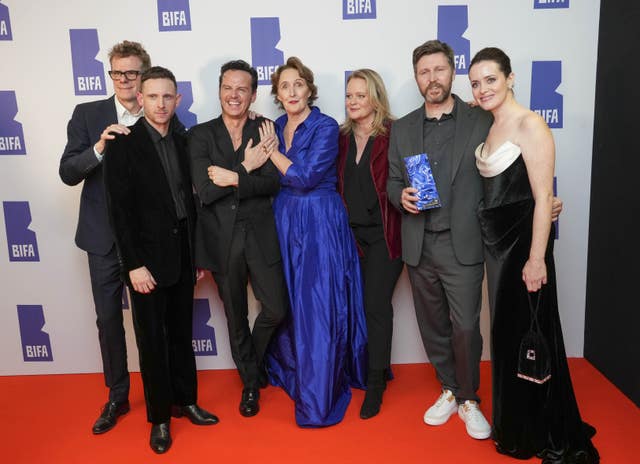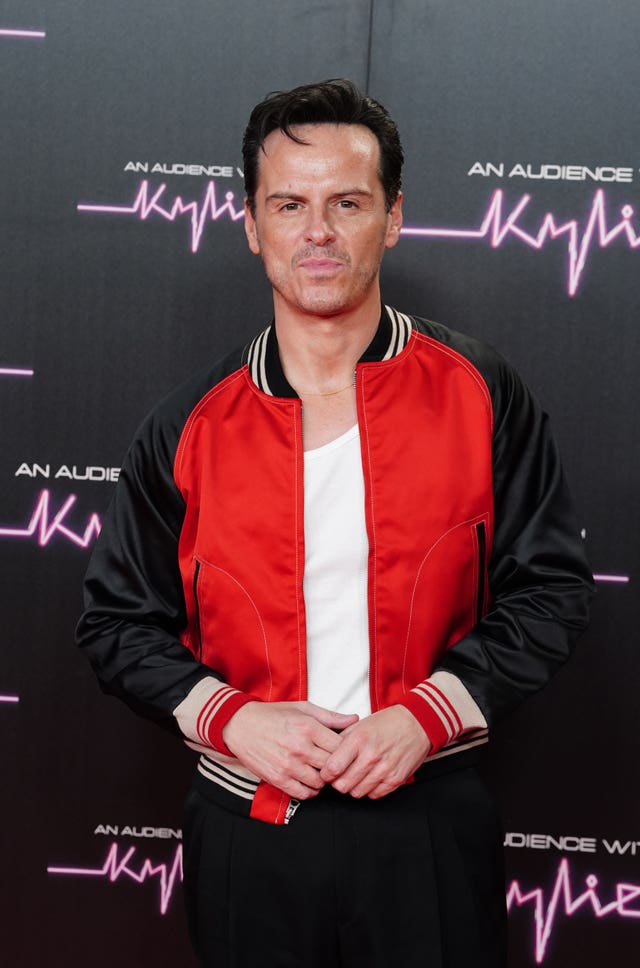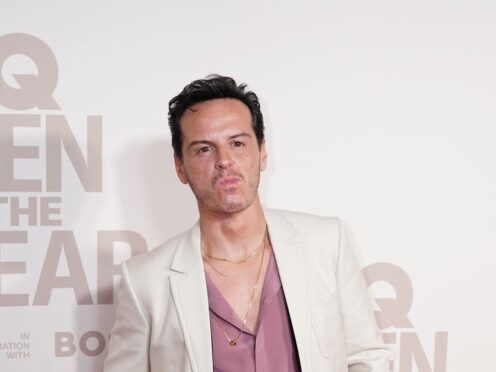Irish actor Andrew Scott has said that we should get “rid of the expression openly gay”.
The 47-year-old film and TV star, who appears in new movie All Of Us Strangers about a budding romance between two men, spoke on the importance of representation in the film industry and why using the term “openly gay” connects sexuality to ideas of shame.
Scott was in conversation with a number of other actors, including Mark Ruffalo, Colman Domingo and Robert Downey Jr, for The Hollywood Reporter’s actors roundtable.

In response to a question he received as an “openly gay actor” about whether “things have gotten better” in the industry, Scott said: “I’m gonna make a pitch for getting rid of the expression openly gay.
“Hear me out. It’s an expression that we actually only ever hear in the media.
“You’re never at a party and you say ‘this is my openly gay friend’.”
He added: “Why do we put openly in front of that adjective? We don’t say ‘you’re openly Irish.’ You don’t say ‘you’re openly left handed.’
“There’s something in it. That’s a little near (the word) shamelessly.”
“I’d nearly prefer shamelessly”, he added.
“Sometimes I just feel like if you’ve got to say it to understand it just say ‘out’ possibly or, you know what, sometimes don’t say anything at all.”
He went on: “I think it’s just time to park it. And I think that’s the strange thing… representation is a wonderful thing.
“But you know, we’re talking an awful lot here about transformation. Representation and transformation.
“And look, I wouldn’t be here if representation hadn’t improved, but I do think transformation is very important for actors.”
He added: “I think there’s a danger of us all actually just being separated a little bit more because I think it’s a dangerous idea to put a clamp on transformation because that shouldn’t be the priority.

“The priority should be clamping down on the prejudice within our industry and looking at who gets to transform, not the transformation itself.”
Scott previously told a newspaper during an interview in 2013 that he did not want to make a big deal about being gay, but that he did not want to hide it either.
The actor has appeared on a number of TV shows and is most known for playing Jim Moriarty in BBC series Sherlock and the priest, otherwise known as the “hot priest”, in Phoebe Waller-Bridge’s hit show Fleabag.
He also stars in the Andrew Haigh-directed film All Of Us Strangers where he plays Adam, who develops a relationship with a neighbour, played by Normal People star Paul Mescal.
The film explores the complexities of grief as Adam is drawn back to his childhood home, where he discovers that his parents appear to be living just as they were years before the day they died, when he was just a child.
